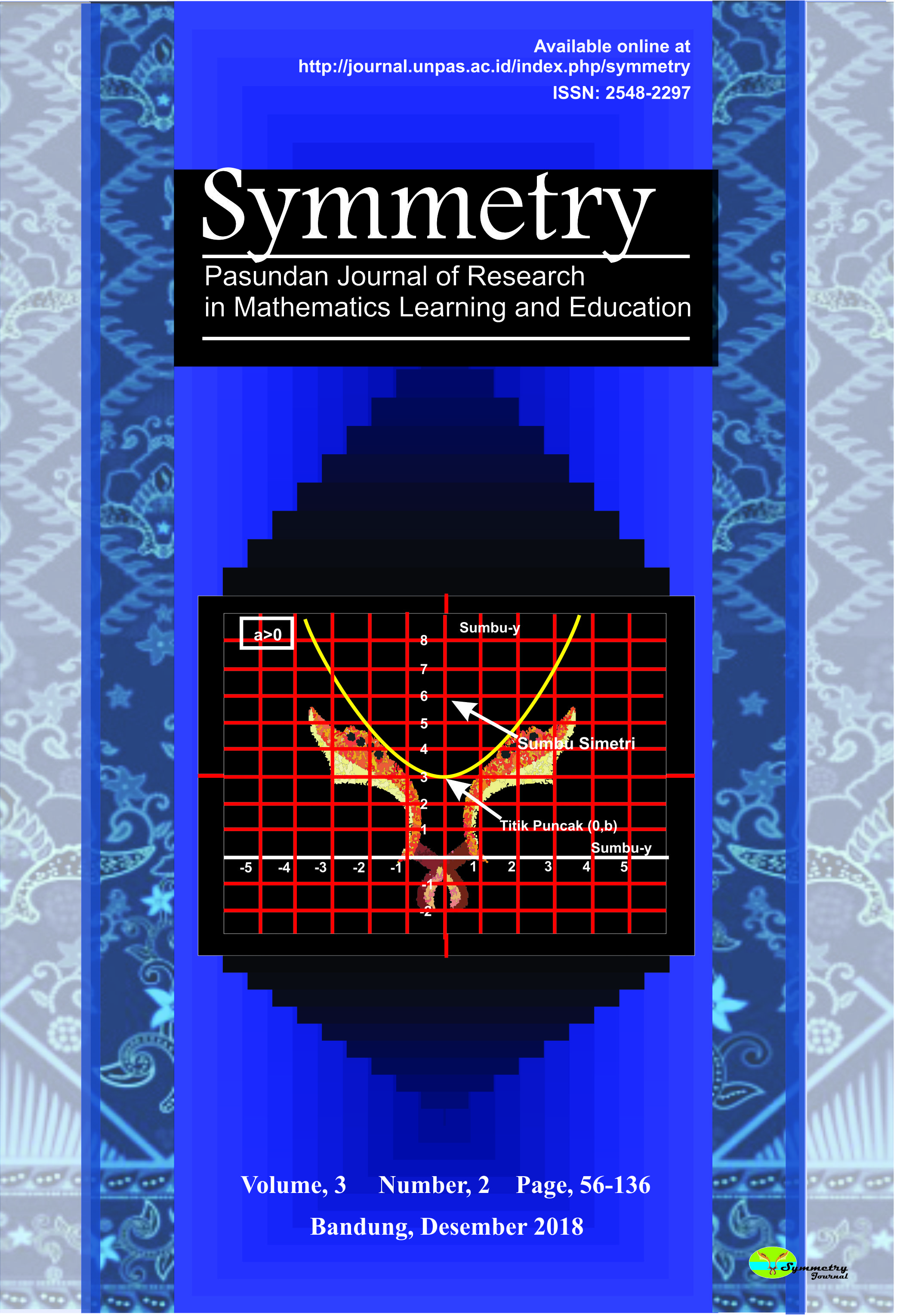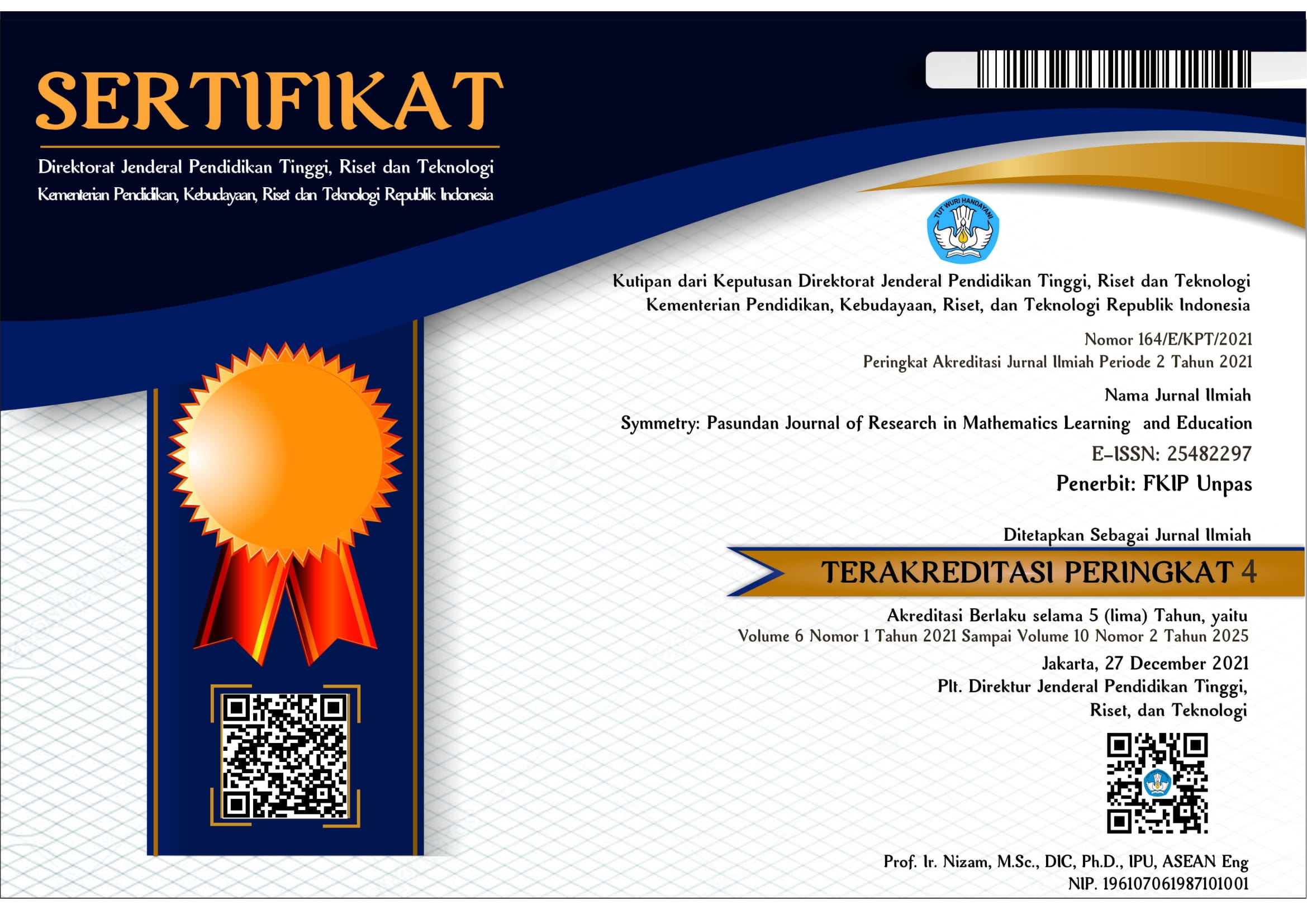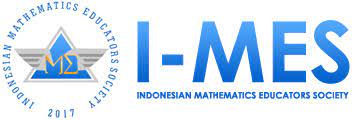DEVELOPMENT OF MATHEMATICAL SNAKES AND LADDERS MEDIA TO IMPROVE ELEMENTARY STUDENTS' LEARNING OUTCOMES ON CIRCLE MATERIALS
DOI:
https://doi.org/10.23969/symmetry.v6i2.4709Keywords:
Elementary School, Learning Media Development, Snakes and Ladders GameAbstract
The success of the teacher in creating an interesting learning atmosphere and can foster a positive attitude of students in participating in this learning is strongly influenced by several factors, one of which is the use of interesting learning media. The purpose of this research is to produce Snakes and Ladders Game Learning Media on the Circle material for grade VI students of SDN 26 Ampenan which is suitable for use based on the assessment of Material Experts, Media Experts, and Students, as well as improving student learning outcomes. Snakes and Ladders Game Learning Media was developed using research and development or Research and Development (R&D) with the ADDIE development model. At the Development stage, the media developed was assessed for feasibility by 2 Material Experts (lecturers and teachers), 1 Media Expert, 5 Small Group Trial Students, and 25 Large Group Trial Students. Data collection techniques in this development research are through questionnaires and tests. The data obtained from the questionnaire were analyzed descriptively qualitatively and quantitatively. The results of the media assessment based on the Material Experts obtained an average score of 3.6 included in the "Very Eligible" criteria, the Media Experts obtained an average score of 3.1 included in the "Eligible" criteria, and Small Group Trial Students obtained an average score 3.5 is included in the "Very Eligible" criteria, and the Large Group Trial of Students obtained an average score of 3.4 is included in the "Eligible" criteria. Student learning outcomes after using the Snakes and Ladders Game Learning Media that has been developed have increased by 56%. It is concluded that the Snakes and Ladders Game Learning Media is acceptable, feasible and effective to be used as a learning medium.Downloads
References
Caetano, G. A., & Zaro, M. (2018). The Impact of Using the Interactive Multimedia Book on Mathematics Learning: A Focus on 7th Grade Students Performance. Creative Education, 09(15), 2455–2476. https://doi.org/10.4236/ce.2018.915185
Diani, R., Yuberti, Y., & Syarlisjiswan, M. R. (2018). Web-Enhanced Course Based on Problem-Based Learning (PBL): Development of Interactive Learning Media for Basic Physics II. Jurnal Ilmiah Pendidikan Fisika Al-Biruni, 7(1), 105. https://doi.org/10.24042/jipfalbiruni.v7i1.2849
Dianna Galante. (2014). The Use of the History of Mathematics in the Teaching of Preservice Teachers. Journal of Research in Mathematics Education, 3(24), 110–117. https://doi.org/10.17583/redimat.2014.921
Farhan, M., Satianingsih, R., & Yustitia, V. (2021). Problem Based Learning On Literacy Mathematics: Experimental Study in Elementary School. Journal of Medives : Journal of Mathematics Education IKIP Veteran Semarang, 5(1), 118. https://doi.org/10.31331/medivesveteran.v5i1.1492
Herdani, T. P., Sartono, N., & Evriyani, D. (2018). Development of Modified Monopoly Game as a Learning Media On Endocrine System (Research and Development at Senior High School 1 Jakarta). BIOSFER: JURNAL PENDIDIKAN BIOLOGI, 8(1), 20–28. https://doi.org/10.21009/biosferjpb.8-1.3
Mainali, B. (2021). Representation in teaching and learning mathematics. International Journal of Education in Mathematics, Science and Technology, 15(3), 56–78. https://doi.org/10.46328/ijemst.1111
Mustaghfiroh, S. (2020). Konsep “Merdeka Belajar” Perspektif Aliran Progresivisme John Dewey. Jurnal Studi Guru Dan Pembelajaran, 3(1 SE-Articles), 141–147. https://doi.org/10.30605/jsgp.3.1.2020.248
Powell, E. M., Frankel, L. A., & Hernandez, D. C. (2017). The mediating role of child self-regulation of eating in the relationship between parental use of food as a reward and child emotional overeating. Appetite, 56(3), 452–478. https://doi.org/10.1016/j.appet.2017.02.017
Sanmee, W., Ruangsan, N., & Kaewketpong, P. (2021). Online Instructional Activities for Creative Internet Use of Tertiary Students in Thailand. Psychology and Education, 58(1), 1453–1457.
Saputri, A., Sukirno, S., Kurniawan, H., & Probowasito, T. (2020). Developing Android Game-Based Learning Media “Go Accounting” in Accounting Learning. Indonesian Journal on Learning and Advanced Education (IJOLAE), 2(2), 91–99. https://doi.org/10.23917/ijolae.v2i2.9998
Simon, M. A. (2020). Reconstructing Mathematics Pedagogy from a Constructivist Perspective. Journal for Research in Mathematics Education, 25(4), 887–896. https://doi.org/10.5951/jresematheduc.26.2.0114
Sudarmilah, E. (2020). Edugame Application as Vocabulary Learning Media for Deaf Children. International Journal of Advanced Trends in Computer Science and Engineering, 9(2), 1543–1550. https://doi.org/10.30534/ijatcse/2020/97922020
Sugiyono. (2016). Metode penelitian kuantitatif kualitatif dan R&D. Alfa Beta.
Downloads
Published
Issue
Section
License
Hak Cipta sepenuhnya ditangan jurnal.















